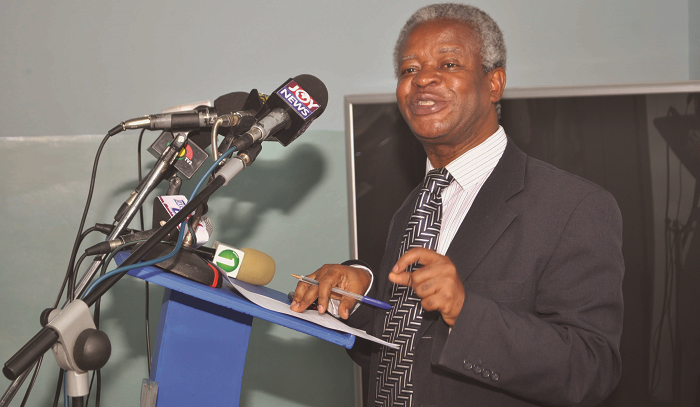
Over 1,000 mentally challenged people identified in Ashanti Region
The Ashanti Regional Directorate of the Ghana Health Service (GHS) has identified 1,167 people living with mental health conditions on the streets of towns and villages in the Ashanti Region in 2016.
The process of identifying the mentally challenged people, which was done on a district basis, is part of measures to get all such people off the streets.
The exercise is also designed to give initial treatment to such people, re-integrate them into their respective communities and be monitored by their families and community health staff.
The Ashanti Regional Deputy Director of Health in charge of Clinical Health, Dr Fred Adomako-Boateng, who announced this at this year’s celebration of World Mental Health Day in Kumasi yesterday, explained that the exercise was to prevent a situation where mentally challenged people would be detained and treated at a central point.
As part of the exercise, he said, the regional directorate had decentralised its health programmes to the community level and that so far out of the 30 districts in the region, 29 had actively embarked on mental health activities.
The day was celebrated on the theme: “Dignity in mental health – Psychological and mental health first aid for all”.
Dr Adomako-Boateng later explained to the Daily Graphic that in most of the cases, after two weeks of initial treatment, the mentally challenged were able to gain consciousness and gravitate towards behaving normally.
Regional statistics
He said mental cases recorded in the region increased from 4,576 in 2013 to 4,919 in 2014 and 5,301 in 2015.
The worrying aspect, he said, was that the mid-year figures for this year indicated that 2,555 cases had already been recorded.
Giving the breakdown for this year, Dr Adomako-Boateng explained that depression constituted 142 cases; schizophrenia, 685; bipolar, 167; organic mental disorder, 156; alcohol abuse, 190; substance abuse, 159, and stress-related conditions, 387 cases.

Dr Akwesi Osei, CEO, Mental Health Authority, delivering his address at the press launch of mental health week at the international press centre.
Legislative Instrument
Meanwhile, the Chief Executive Officer (CEO) of the Mental Health Authority (MHA), Dr Akwasi Osei, has called on the Ministry of Finance and Parliament to expedite action on the passage of the Legislative Instrument (LI) that will give legal backing to the MHA to establish the mental health fund.
He said the fund would be a long-term solution to the daunting challenges psychiatric and mental health facilities faced in their quest to deliver quality health care to the public.
“We have identified all the issues affecting the efficient delivery of mental health care in the country and found an antidote in the form of a mental health law. But the law will be implemented through an auxiliary instrument, which is the LI. The law has been passed but we need the LI because it captures the issue of developing a sustainable levy as a funding mechanism for mental health,” he said.
Speaking at the launch of the World Mental Health Day and the National Mental Health Week in Accra yesterday, Dr Osei observed that the lack of a sustainable fund for mental health was the cause of the low quality of mental health regime in the country.
LI is Key
According to Dr Osei, funds that would be raised from the mental health fund would not only help improve infrastructure in mental health facilities in the country but also be a viable avenue for the MHA to implement its policies.
He said reliable information made available to the MHA indicated that the technocrats at the Ministry of Finance had finished work on the proposed levy but the minister was yet to sign the document and forward it to the Subsidiary Legislation Committee of Parliament.
